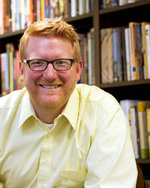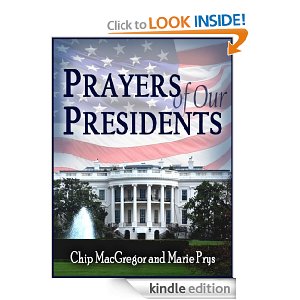- Agents
- Author News, Deals
- Awards
- Bad Poetry
- Blog News
- Books
- Career
- CBA
- Collaborating and Ghosting
- Conferences
- Current Affairs
- Deep Thoughts
- Favorite Books
- Featured
- Film
- Marketing and Platforms
- Proposals
- Publishing
- Questions from Beginners
- Quick Tips
- Religion
- Resources for Writing
- Self-Publishing
- Social Media Critique
- The Business of Writing
- The Writing Craft
- Thursdays with Amanda
- Trends
- Uncategorized
- Web/Tech
Category : Uncategorized
-
Continue Reading "Living the writer’s life."
Living the writer’s life.
 Guest post with Philip Patterson
Guest post with Philip PattersonI’ve been blessed. I’ll admit it. I broke in to both publishing and college textbook publishing when an unsolicited manuscript was opened, usually returned and sometimes had constructive comments scrawled on it. That’s a long time ago. But after I got my foot (feet?) into two doors, I found that the work had just started. A couple of decades later, here’s what I know about the writer’s life. None of this is unique to me, but if you catch a pattern in what most of your advisors are saying—it’s for a reason.
ONE: Write everyday. Don’t wait for the muse to come to you, entice the muse by writing. Most writers work at the same time every day and for about the same amount of time (or word count) each day. Resist the marathon session. When time allows, edit what you’ve already written instead or do the research for future writing. Resist stalling. A neat desk is not a substitute for 1000 useable words.
TWO: Write at the best time of day. For some, their best time is early morning; for others, it’s after work or even late evening. My longest book—a 365 day devotional Bible with 500-word essays each day—was written almost entirely outside my home. The bulk of it was written early each morning at a local coffee shop where everybody there knew what I was doing and gave me the space and the encouragement to do it. They were my “writers group,” and because of the nature of my book, they were a good one.
THREE: Write what you know. Your own experience and everyday observations should give you a wealth of information to begin. I started with my known field of mass communication and wrote a couple of books for the religious market on parenting children in a media age. It worked because, as a journalism professor, I had the academic
-
Continue Reading "Get Published teleseminar with Michael Hyatt, Chip MacGregor, and Amanda Luedeke"
Get Published teleseminar with Michael Hyatt, Chip MacGregor, and Amanda Luedeke
Join us (Chip and Amanda) and Michael Hyatt, bestselling author and former CEO of Thomas Nelson, for a complimentary LIVE teleseminar on Wednesday, April 10 at 8pm Eastern Time (7pm Central, 5pm Pacific).
During this call you’ll have the ability to get your publishing questions answered by the three of us. You’ll also learn many of Michael’s insider secrets on getting published and building a platform for success.
The call will last about an hour. It’s free for all to join and there will be an MP3 recording / replay shared with all who register. When you register you will have the option to submit a question for us to answer
FAQs
Q: What is a teleseminar?
A: Think of it as a giant conference call. You dial in (or listen via streaming web audio), along with others and listen while we share and answer questions.
Q: How much does this cost?
A: It’s free. If you choose to access the LIVE call via phone, you may incur standard long-distance charges if you choose a dial-in number that is not local to you (there are multiple dial-in number options). Other than that, no fee at all.
Q: What is the date and time?
A: The LIVE call will take place on Wednesday, April 10 at 8pm Eastern Time (7pm Central, 5pm Pacific).
Q: How can I access the LIVE call?
A: You’ll have two options. Our call capacity is 3,000 total. Five hundred can access the call via phone, the rest via streaming web audio (listening via your computer). Access is on a first-come, first-served based on registration and which access option you chose. We will notify you prior to the call with the specific phone number and web address.
Q: I can’t make the LIVE call. Will there be a recording?
A: Yes, we’ll make the recording available to all who registered after
-
Continue Reading "Guest Post: Vicki Hinze"
Guest Post: Vicki Hinze
Mailing Lists
For decades, Authors have been told there are two things they really should do:
1. A website.
2. A newsletter.
The website is self-explanatory, and I’ll discuss it in more depth in another article. For now, it’s sufficient to say that when readers, booksellers, or industry professionals are interested in an author or intrigued by something an author did or said–or something else has spurred curiosity–these people first look to the author’s website to find out more about that author.
They often skip the search engine “search” and go straight to the author’s name followed by .com. That’s the biggest reason you’re always advised to try to get your name (or pseudonym, if you use one) and set your site up (author’s name).com.
The newsletter is a bit more tricky. There are multiple reasons why they’re a good idea. Here are a few:
1. It’s the author’s personal connection to the reader. A dialogue, if you will, that is between just the two of you.
2. It’s an efficient way to exchange information, to keep readers current on what’s going on with the author’s work.
3. It’s essential to notify readers of special events and special deals of interest to them. (For example, for one day or one month, a bookseller has reduced the price of your $15.99 book to $5.60. That’s helpful information for readers.
How to let them know brings us to newsletters, and that brings us to mailing lists: the means through which we can connect for those purposes. I hear authors groaning already about another writing-related task that keeps them from writing the books, but let me share that your mailing list is an enormously valuable asset. Why?
I touched on the personal connection and information sharing and awareness factors above. But this is also the author’s opportunity to create bonds. They’re important–to authors but also to readers. In your newsletter, readers see
-
Continue Reading "Guest Post with Chad Allen"
Guest Post with Chad Allen
How to Be a Christian Author without Embarrassing God

Tony Campolo wrote a book a while back titled Following Jesus without Embarrassing God. In it Campolo challenged Christians to let go of practices and attitudes that had very little to do with Jesus. Campolo’s goal was for more of Jesus to come through.
As an editorial director for Baker Publishing Group I work almost exclusively with Christian authors, which is both my joy and my passion. Every day I get to help authors write about the most sublime and sacred truths the world has ever known.
That’s why I want to write this post. Sometimes we Christians do things that make the rest of the world squirm, including other Christians. We are good news people, but sometimes we get in the way of the good news, and that includes me.
So, with a nod to Tony Campolo, I humbly submit the following ways to be a Christian author without embarrassing God.
Don’t say, “God told me your publishing house is supposed to publish my book.”
Whether God did or not, you don’t have to tell us about it. Honestly it freaks publishing people out, and we’re tempted to say back to you, “God told us to run away from you!”
Be authentic.
One of the most powerful things we Christians can do is faithfully and transparently tell others why we believe. Avoid putting on airs.
Stop proof texting.
Proof texting is when you pull Scripture out of your butt to serve your own needs and make you sound smart or spiritual. Don’t do that. Have some respect for the text. Keep it contextual and organic.
Find some friends with whom you can be real about your struggles.
The thing I’ve noticed about high-profile Christian authors who end up in the news for moral failure is that they lose connection with, or never had, friends with whom they can be
-
Continue Reading "Why did you become a writer?"
Why did you become a writer?
Someone wrote to say, “I’ve never seen you answer this question… What moved you to begin writing?”
I’ve always been a words guy — I started writing as a child and never stopped. My mom said that, when I was in first grade, I came home and announced, “When I grow up, I’m going to be a book guy.” So I guess I had to live up to that promise. I’ve been writing ever since. My life has been intertwined with words. My first real job in college was as a copyeditor for a junior high science teacher’s magazine. I later worked for newspapers, then back to magazines, and eventually to books. I can’t not write. There are stories inside me, or stories I see, and they simply must be told. I love working with authors to help them tell their stories. Words are what move me. Thanks for asking.
On a related note, someone asked, “As a writer, what keeps you going through the setbacks and disappointments?”
I suppose a lot of writers will tell you that writing is therapy – and I suppose it is for me, in a way. But I’ve kept writing because I still have stories to tell, I still have things to say. I rarely feel the setbacks I’ve faced were because of my writing. Rather, they were in spite of my writing, or maybe they were at odds with my writing. So I kept writing until I could convince the people who made the mistake of saying “no” in the first place.
And let’s face it – most “disappointment” authors face is really the simple act of rejection. Writers hate to hear the word “no.” But I’ve never been one who allowed “no” to get in the way of accomplishing what I wanted. So while I’ve had more than my shares of “no” as both writer and agent, I’ve continued writing because that’s
-
Continue Reading "New Book Release"
New Book Release
Okay, so I have a new book releasing. My longtime friend, editor, and longsuffering co-worker Marie Prys and I were interested in the spiritual lives of our US Presidents. I suppose prayers have been uttered in the oval office since before that uniquely-named place existed. Many of those words were captured, and some still resonate today. Mostly they prayed for wisdom as they served the country, sometimes for thanksgiving or appeals for justice. We did our research, included some biographical data on the men who filled the role of president, tried to keep out all the partisan bickering, and just made an attempt to introduce readers to a different side of the presidents. This is an ebook (we originally did a print version about ten years ago, but went through and updated everything), and it’s only $2.99 on Amazon, B&N.com, the iBookstore, and Kobo. Give it a read and let me know what you think. Thanks!
-Chip MacGregor
-
Continue Reading "What first-person authors do you recommend?"
What first-person authors do you recommend?
We’ve been going through the hundreds of questions people have sent it, and trying to catch up. One person noted, “You’ve said that first person novels are hard to do well. Can you give some examples of successful books done in first person?”
Sure. Historically, both Mark Twain and Charles Dickens wrote books in first person. William Faulkner and numerous other great writers have done so on occasion. The Great Gatsby is in first person, as are all the Sherlock Holmes books (written by his close friend Dr. Watson). Isaac Asimov’s I, Robot, Charlotte Bronte’s Jane Eyre, Joseph Conrad’s Heart of Darkness, Emily Bronte’s Wuthering Heights, Helen Fielding’s Bridget Jones’ Diary, and Jeffery Eugenides’ The Virgin Suicides are all told in first person. And, as I noted in an earlier post, two of my personal favorite writers, Ross Thomas and John D. MacDonald, regularly wrote in first person.
Another person asked, “I’m trying to write a story that’s true, but change the names and places of the events. I’ve had dramatic, criminal-headline-grabbing events in my family, but I keep going back and forth between creative nonfiction and a novel based on facts. What’s the difference? Which is better?”
First, neither is “better.” They’re just very different. A nonfiction true crime book will garner a much different audience than a well-done novel that is loosely based on actual events. Fiction, in my humble opinion, is harder to do well. But both need to offer great storytelling.
Second, you have to be very careful in terms of the legal issues with both forms. If you do a true crime book and name names, you’d better make sure the bad things said about people are a matter of public record. If you do a novel based on an actual crime, you’ve got to change names and events enough so that a reasonable person cannot tell who the characters represent.
Third, the best -
Continue Reading "Are writing contests a good place to get noticed?"
Are writing contests a good place to get noticed?
Someone wrote and said, “I noticed you mentioned an upcoming conference. Can you tell us which conferences you recommend for general writing? And for those of us who do inspirational writing?”
Writing conferences are a great way to meet editors, interview agents, get some speciality training in a genre, find what’s new in the world of publishing, and just get away from home and get motivated to write again by hanging out with other writers. There are dozens of good writing conferences, in every corner of the country. Many colleges and regional writing groups put on very professional conferences with strong faculty. Some organizations like the Romance Writers of America, Mystery Writers of America, and the Society of Children’s Book Writers and Illustrators offer their own specialized conferences. And there are some very famous conferences you can explore — Antioch, Sewanee, Iowa Summer Writing Festival, Jackson Hole, Pennwriters. Go to Google and search both location and topic or specialty. The best way to evaluate a conference is to look at the faculty and see who’s coming. For any writer who touches on religious themes, I highly recommend the Calvin Festival of Faith and Writing, which I think is the best book conference out there. For Christian novelists, the best conference is put on by the American Christian Fiction Writers each September. I also like the Blue Ridge Christian Writers Conference, and Write to Publish, which takes place on the Wheaton College campus in Chicago.
One author sent this: “I’ve noticed on agent and editor blogs there seems to be a discrepancy in opinions as to what’s selling and what’s not. I can understand a particular publisher explaining there are certain things they’ve zeroed in on (for example, Harvest seems to sell a lot of Amish novels), but how can one agent declare something is definitely ‘out’ when another professional insists they are looking for that very genre?”
Well, my guess
-
Continue Reading "To Enter or Not to Enter?"
To Enter or Not to Enter?
What is the Benefit in a Contest?
Today’s guest post is by Nancy J. Farrier, IRCA Coordinator
Published authors may wonder about the advantages of entering a contest. As a finalist or winner, there are the accolades, possible increased sales, and a wonderful feeling of accomplishment, but without the win, does anyone care? What good comes from spending the money to put your “baby” in a contest?
The Inspirational Reader’s Choice Award is a unique contest for authors published in Inspirational fiction. The judges for the IRCA are readers of inspirational fiction, but are not involved in the publishing industry. They don’t write, edit, or do book reviews. These judges simply love Inspirational fiction. They love to share books and authors with other readers. They are the readers authors want to reach.
Our readers are from across the United States and as far away as Australia. Most are people of faith who attend church regularly, but not all of them do. Some of our readers appreciate a wholesome story, or are what some might term “seekers.” If the judge is a Christian, they will often think of someone when reading a book, someone your book might benefit.
For the past thirteen years I have coordinated the IRCA. I read many comments from the judges. Comments that we promised to keep private, but are often so exciting I want to send them to the author as encouragement. I’ll share a few of those comments anonymously below:
Tremendously wonderful read!…I had to have [the author’s] other books, so I ran out and bought them.
…I would definitely recommend this book and will be looking into other books by the author…
New author for me to read, but I will look for more of her books.
As a published author, think of the possibilities for reaching new readers if you entered the Inspirational Reader’s Choice Award. Fans this excited would love telling everyone
-
Continue Reading "Why do you think a critique group is important?"
Why do you think a critique group is important?
Someone sent this: “You often encourage writers at conferences to join a critique group. But I joined one at a conference last year, and I didn’t think it helped much at all. I’m published, nobody else in the group is, and I didn’t really feel the others in the group gave me much help or offered a lot of insight. Why do you think a critique group is important?”
Well, if you’re a good writer, and you’re in a critique group with bad writers, I think it’s fair to question if that’s beneficial. Perhaps that’s why most writers, once they attain some measure of success, often leave their critique groups and look for a writing partner or mentor.
HOWEVER, I’d have three thoughts for you.
First, there’s probably value in listening to what others have to say, even if you’re not sure they have great craft. Some excellent writing teachers are just okay writers — their lack of craft doesn’t mean they have nothing to say on the topic. So consider at least going through the process for a while. As we Scots say, “Learn to unpack a rebuke.”
Second, look for a better writer in the group, so that you’ve got one person in the group you can listen to, and whom you can help. Then pay attention to what they have to say, and do your best to try and help him or her improve. That will build your trust.
Third, by all means search for one writer (perhaps at a conference or workshop) who is ahead of you a bit. Find a writer who is a bit farther down the path, and develop a friendship. That would give you someone to go to, to share your work with, and to offer you advice. You’ll have to be patient with this one — nearly every good writer is bombarded with requests for help (though it’s usually “help by



